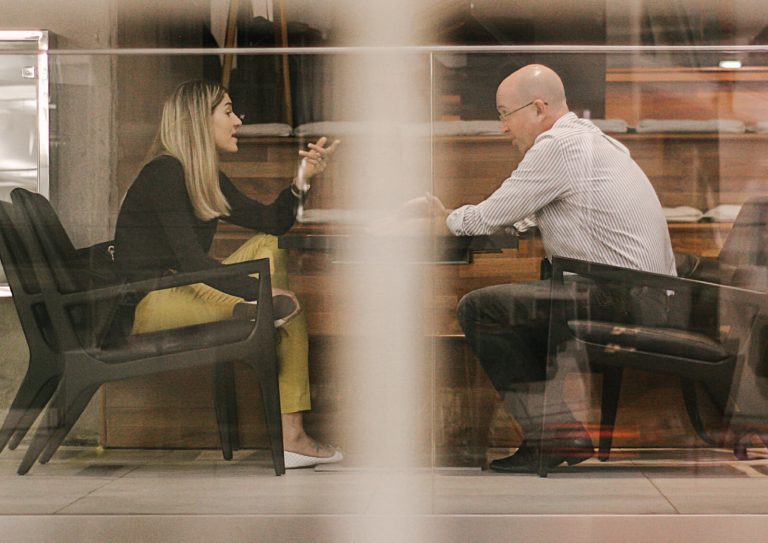The loss of a job or redundancy is one of the most difficult challenges a person can experience and is, in fact, the eighth most stressful life event according to the Holmes and Rahe Stress Test. Job loss has the potential to impact almost all aspects of our lives – relationships, all-important routines, and professional and personal identity. Whatever the circumstances of a job loss, it can leave you feeling unmoored and your self-confidence dwindling.
It’s no surprise that a job loss or redundancy is such a blow to a person’s self-esteem, with research showing there is a reciprocal relationship between employment and self-confidence. Job loss is one major life challenge we can least afford to let break us. It comes with an imperative to pick ourselves up, get back in the saddle and start all over again.
But it isn’t that easy, we need time to absorb what has happened. Most importantly, we need strategies to manage self-confidence at such a vulnerable time.
How to build your self-confidence after losing your job
We talk about self-confidence as if it is a tangible, solid entity, but what is it exactly? When we imagine a self-confident person, we evoke images of someone who trusts their abilities, values their own judgement, has faith they can cope with life’s challenges, and believes they deserve the good things in life. A self-confident person steps out of their comfort zone, learns new skills, identifies lessons of failure and applies them with a determination to inform their future actions. But does such a person even exist?
Of course, this profile of self-confidence is an ideal we can aspire to, rather than a reality we can always embody. The problem with ideals is that when we don’t match up to them, they can become oppressive and feed our despair. Self-confidence takes a different form for each of us and calls for a balanced approach where we navigate between a belief in ourselves and a gentle acceptance of our insecurities.
Well-meaning people often tell us to “think positively” in the face of an adversity like job loss. But sometimes the energy we need to step out of our comfort zone and achieve our goals can be driven just as usefully by our fears and anxieties as by positive thoughts. What is often misunderstood about our inner critic is that, without its help, we would not recognise where we have gone wrong and what we need to do to make amends.
Maintaining self-confidence is often assuming a posture of “fake it ‘til you make it” – being able to hold ourselves together on the surface while our insecurities chatter away below. And if we are able to “make it”, it becomes a building block for our self-confidence, and from there we might take further steps.
Acknowledge your feelings
You’ve been made redundant, now what? Firstly, you must be prepared for the many feelings that accompany the loss of a job – grief, shock, hurt, anger, shame, humiliation, depression, powerlessness and fears about the future.
We don’t have to understand our feelings, but if we can acknowledge and experience them without fear or judgement, we can “digest” our loss and move on with life. Beware the pull to wallow in self-pity or engage in destructive behaviours that offer short-term relief, but quickly become ways to make us feel worse.
Don’t take job loss personally
One of the most difficult challenges is to not take a job loss personally. Losing a job can happen to any of us and may be driven by circumstances beyond our control such as economic realities, office politics or pandemics. It helps if we can accept the uncertainty of life and focus on the things we can control. If your company has given an explanation about why your role has ended, let yourself accept that, rather than spend time suspecting other, more personal, reasons.
Reach out to others, network and skill up
After the loss of a job, we may want to withdraw out of shame or embarrassment. And yet, the company of others helps us to express our fears and feelings, get perspective, and might even lead to new opportunities. Get in contact with former colleagues, mentors and clients you’ve had good working relationships with, and use online communities like LinkedIn to connect with others experiencing job loss and unemployment-related stress.
To begin to build back your confidence, enrol in training courses to refresh your skills. Even if they repeat things you know, they will reassure you that your skill set is sound and contemporary. Additionally, it allows you to tell a productive story about your job search period when applying for new jobs.
Establish routine, structure and self-care after losing your job
A regular daily routine and structure can help us feel productive and prevent boredom and depression. Get up at the same time each day and set goals for your job search, as well as allocating time for exercise, rest and networking. Being unemployed is no reason to let our heath go to ruin. Exercise, diet, sleep and relaxation have a huge effect on our energy levels and mood. They also make us more mentally alert and feel more in control of ourselves and our situation.
Given that job loss is challenging, you may need support outside your friendship and family network to navigate the experience. You can consider a career coach to talk through professional options, and an experienced counsellor to help with motivation, optimism, focus and resilience.
Relationships Australia NSW offers several services and programs to help you navigate job loss and other work-related challenges and stress. Enquire today about our confidential one-on-one counselling services, or check out our range of professional training programs.
Related Services & Workshops

Accidental Mediator
Accidental Mediator is a training workshop that gives your team the skills and confidence to effectively resolve conflict, tensions and misunderstandings in the workplace.

Accidental Counsellor
Accidental Counsellor is a workshop to assist people who aren’t trained counsellors, but often find themselves in a counselling role “by accident”. You’ll learn how to support clients, friends, family, colleagues, and strangers in distress or experiencing a crisis.

Counselling.Individuals.Older People.LGBTQIA+
Individual Counselling
Life can be full of ups and downs. While we may be able to overcome most challenges by ourselves, sometimes we need some extra support. Individual Counselling offers a supportive environment to identify and manage problems and concerns.






